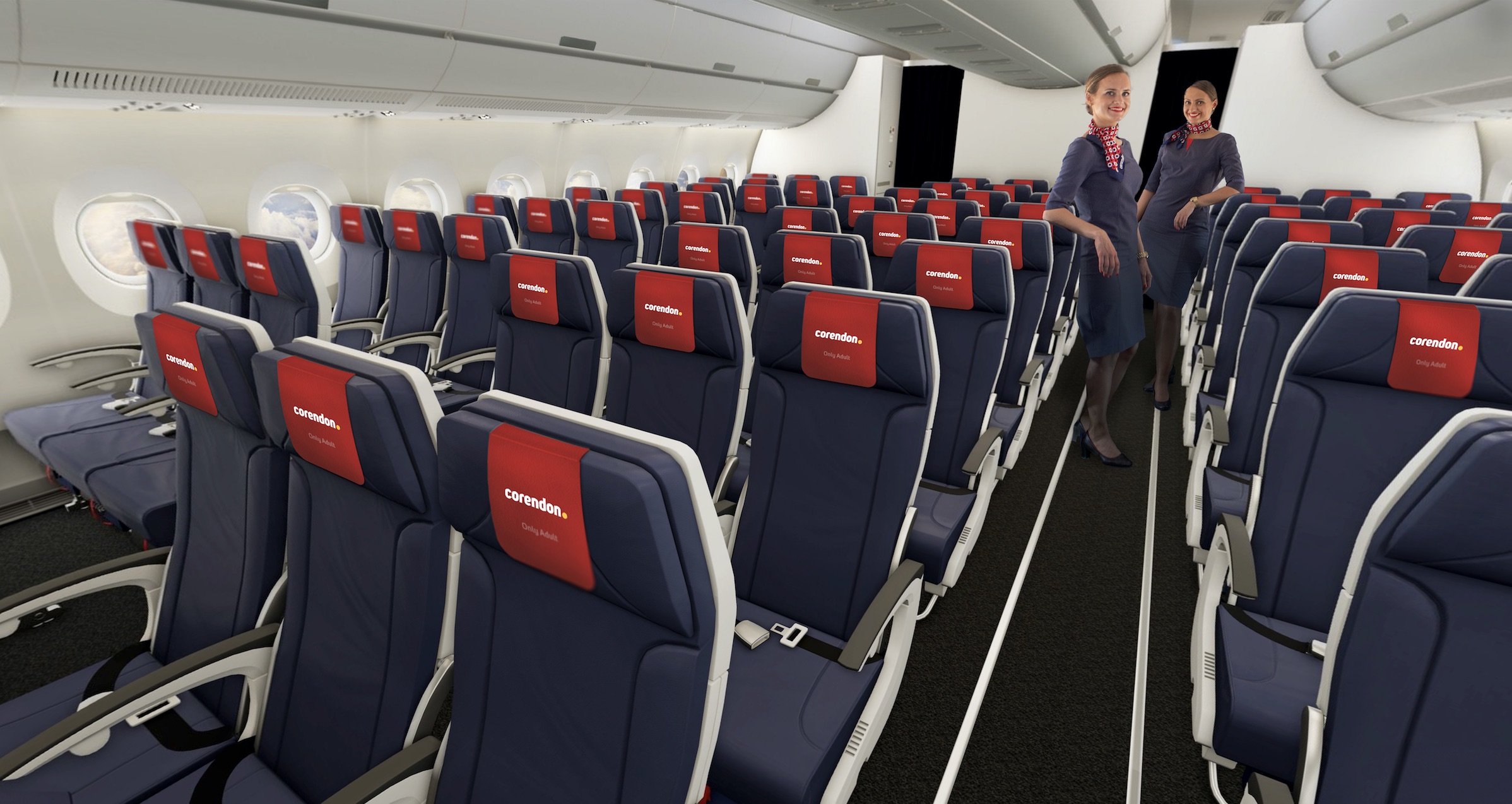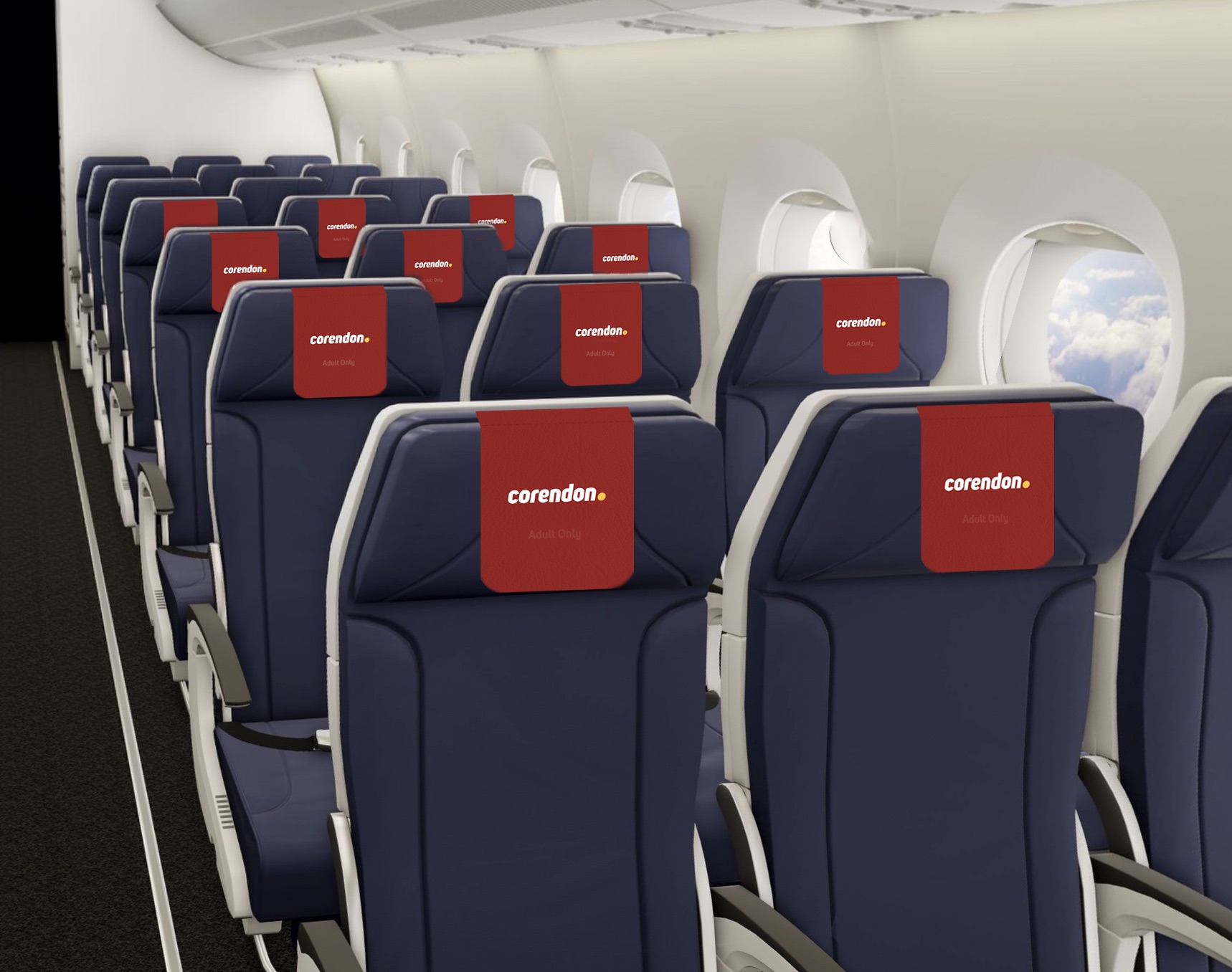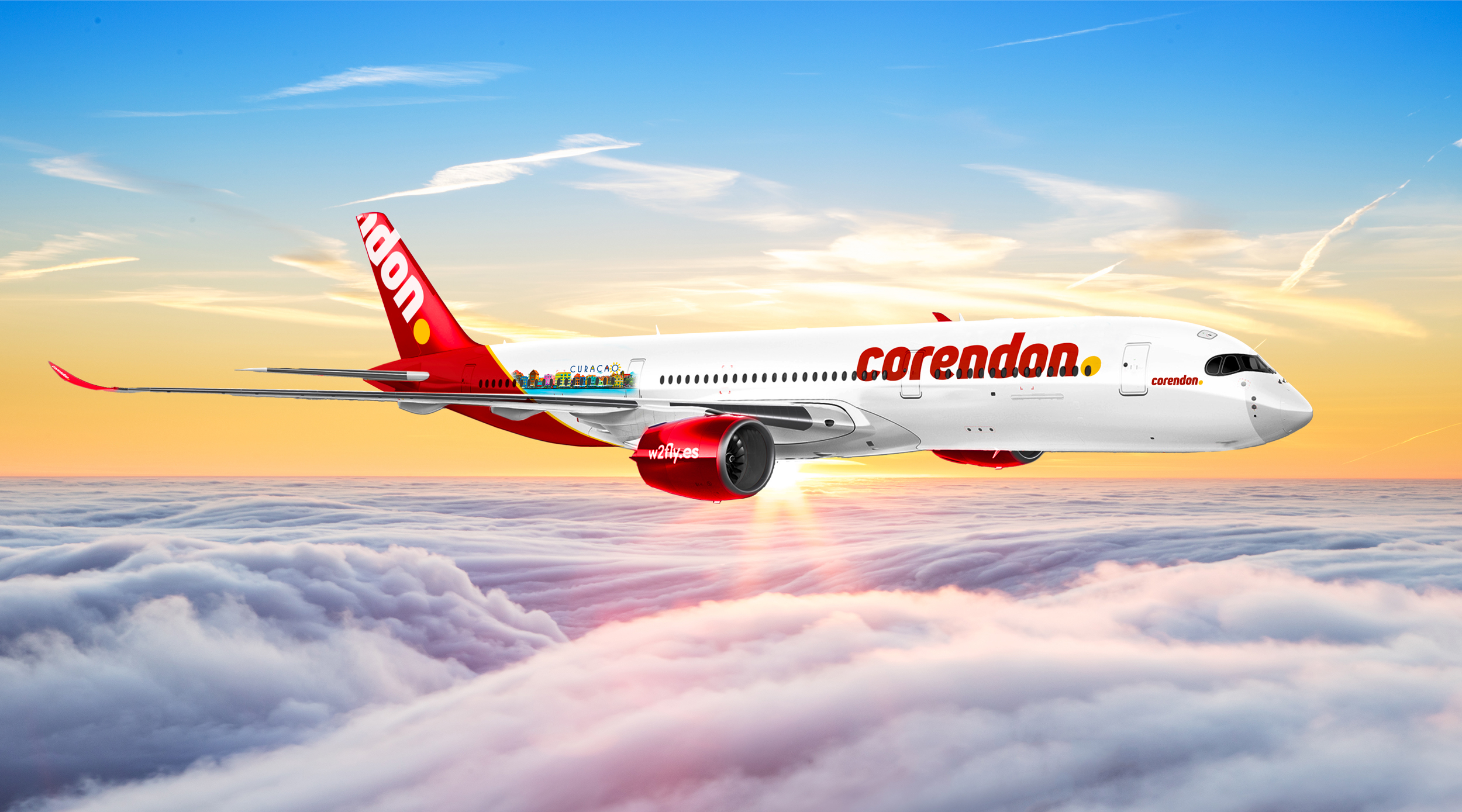What would you pay to guarantee that your seat on an airplane isn’t next to a crying baby, wiggly toddler, or chatty adolescent? Can you even put a price on a peaceful air travel experience? One European airline thinks so.
In a groundbreaking move for air travel, Turkish-Dutch Corendon Airlines is set to become the first airline in Europe to test a dedicated seating section exclusively for passengers aged 16 and older — aka an “Only Adult” zone. This unique zone will be available on test flights between Amsterdam and Curaçao beginning November 3, 2023, the airline announced in a press release.

What is Turkish-Dutch Corendon Airlines’ “Only Adult” zone?
The concept is quite simple – create an environment where passengers who want a more serene and quiet journey are guaranteed just that. (Unless, of course, an adult nearby has an unsightly outburst.) To ensure an even more tranquil atmosphere, this specialized section is located at the front of the aircraft and partitioned from the rest of the plane using walls and curtains, effectively shielding passengers from potential disturbances from children.
On the airline’s Airbus A350-900 aircraft, the “Only Adult” zone boasts nine XL seats with ample legroom and 93 standard seats.
So, what’s the catch? Well, this upgraded seat option does come at a cost. For a one-way ticket between Amsterdam and Curaçao, the privilege of securing a seat in the “Only Adult” zone will cost an additional 45 euros — roughly $49 on top of the regular ticket cost. Looking to spring for extra legroom? An XL seat within this kid-free zone will set you back an extra 100 euros, or about $108.

Why do airlines need an “Only Adult” zone?
According to the airline’s press release, testing this new zone is a step toward catering to more diverse passenger needs. “On board our flights, we always strive to respond to the different needs of our customers. We are also the first Dutch airline to introduce the Only Adult zone because we cater, trying to appeal to travelers looking for some extra peace of mind during their flight,” Atilay Uslu, founder of Corendon Airlines, said. “We also believe this can have a positive effect on parents traveling with small children. They can enjoy the flight without worrying if their children make more noise.”
As a parent myself, I agree. Flying with small children comes with a myriad of challenges — not the least of which is judgment from other passengers. With a designated zone for adults who wish to pay to travel away from the potential chaos and commotion of little ones on board, parents can feel more at ease on flights, knowing that the chances of sitting near someone who might be upset by their child’s noise or behavior — however unintentional it may be — are lower than usual.
The Only Adult zone concept isn’t entirely unprecedented. Some international airlines have experimented with similar concepts to enhance passenger experiences. For instance, the Singaporean low-budget airline Scoot offers “Scoot-in-Silence” cabins, where passengers must be 12 years or older to be eligible for seating in this designated quiet zone.
As the November launch date approaches, both childless travelers and parents alike can anticipate a new level of comfort and convenience on their flights between Amsterdam and Curaçao. Whether it’s business travelers seeking a peaceful workspace or parents aiming for a less stressful journey, Corendon’s innovative approach has the potential to make air travel a more enjoyable experience for everyone on board.




